Houseplants can obviously add life to a home, despite the fact that some kinds are harmful to pets and may even be fatal if consumed. The following list of plants is harmful to your pet because of the toxic compounds they contain.
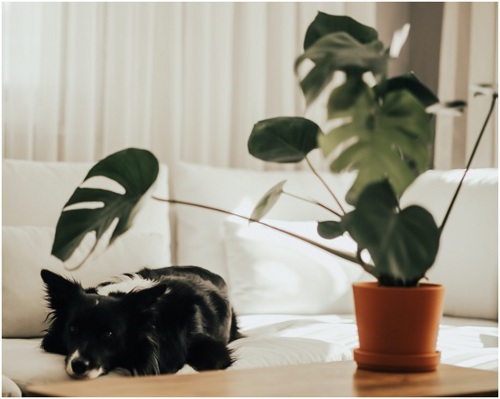

All pet owners are advised to become familiar with these plants because many of them go by a variety of names. Maintaining the first aid kit nearby for your pet in case of an accident is also a smart idea and keeping pet-friendly houseplants in the home.
1. Aloe Vera
The aloe plant is a common household plant because it requires little maintenance and because the sticky liquid found in its leaves may be used to treat a variety of ailments, including burns. However, if your pet consumes this chemical, he can experience severe vomiting and colorful urine. Aloe Vera, Barbados Aloe and the Medicine Plant are among other nicknames for the aloe plant.
2. Philodendron
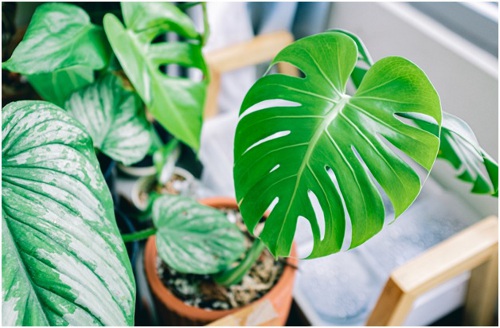

A very common indoor plant known as a philodendron contains calcium oxalate crystals that are poisonous to cats and dogs.
Philodendron can irritate the tongue, throat, and lips, causing excessive drooling, burning sensations, vomiting, difficulty swallowing, and diarrhea if consumed.
3. Lilies
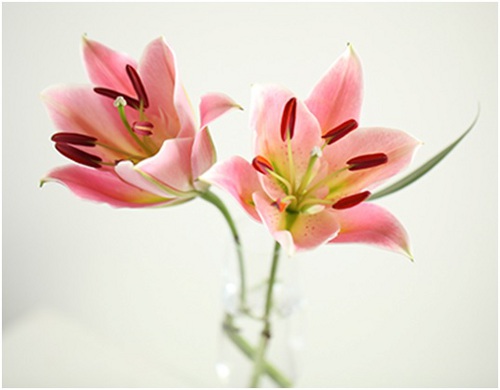

Although the lily family of plants is highly diverse, some of its members are poisonous to dogs and cats. While the Stargazer and Easter Lilies are toxic to both cats and dogs, the Mauna Lao, also known as the Peace Lily, is poisonous to both. In fact, cats may not survive if the Venus and Easter Lilies are left untreated since they affect the cat’s kidneys and appetite. If your dog or cat consumes peace lily, he or she may vomit and struggle to swallow due to irritated lips and tongue.
4. Jade Plant
The Jade plant is also known as Baby Jade, the Friendship Tree, the Dwarf Rubber Plant, the Chinese or Japanese Rubber Plant, and the Jade Tree. Whatever you choose to call it, make sure to keep your pet cat or dog away from it. Although the specific toxins in this plant are unknown, eating it can cause vomiting, ataxia (loss of coordination), bradycardia (slow heartbeat), and/or sadness.
5. Dumb Cane
The poisonous plant Dieffenbachia is also known as Dumb Cane, Exotica, or Tropic Snow, and it is toxic to both dogs and cats. The poisonous chemicals in this plant can cause vomiting, trouble swallowing, burning or swelling of the tongue and mouth, as well as excessive salivation. It may occasionally result in respiratory problems or even death.
6. Dieffenbachia
This common houseplant has the same kind of toxicity as several other tropical plants, such as the philodendron. Small, sharp calcium oxalate crystals found in the leaves can irritate a dog’s mouth and result in significant edema and burning of the tongue and mouth. Rarely, this inflammation can cause respiratory problems and, in extreme circumstances, death.
7. Elephant Ear
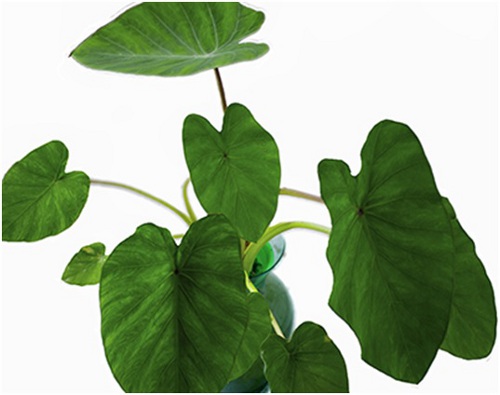

Elephant ear plants get their name from the way their leaves look like elephant ears. These broad-leaved plants are also known by the names Taro, Pai, Malanga, Via Sori, Ape, and Caladium. Your pet will experience increased salivation, trouble swallowing, mouth discomfort, and vomiting if they consume elephant ear.
8. Peace Lily
Knowledge of the dangers of peace Lily is a rather contradictory plant; only if large amounts of the leaves are consumed is it likely to be harmful. A few symptoms include a burning mouth, excessive salivation, dehydration, a lack of appetite, and vomiting. Renal failure could result from peace lily poisoning if it is not treated.
9. Sowbread
This flower will add color to any space, but dogs and cats should avoid it. When ingested, it may cause increased salivation and drooling, vomiting, diarrhea, an irregular heartbeat, and/or seizures. In extreme situations, it may even be fatal.
10. Sago Palm
The sago palm gives your house an exotic look, but every part of the plant, including the seeds, roots, and leaves, is harmful to dogs and cats. This plant is on the Pet Poison Help line’s Top Terrible Toxins list because of its unfavorable reputation as a houseplant that is toxic to dogs. Cycasin, a toxin, can make people throw up and have diarrhea. Seizures, fatigue, and liver failure may result in severe cases.
11. Caladium
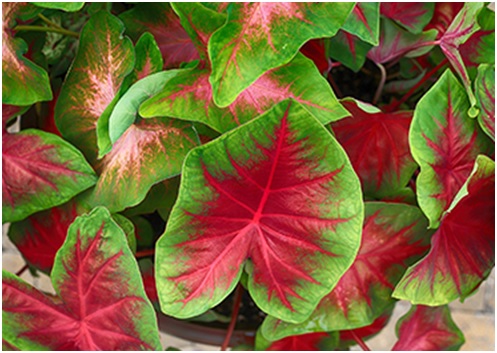

Few foliage plants can match the beautiful colors and patterns that Caladiums display, but if cats or dogs eat these plants, calcium oxalates can cause mouth irritation, pain, and emphysema.
12. Dracaena
Dracaena plants are very popular since they are simple to grow and can flourish even in low-light settings. They are poisonous to both cats and dogs, though. Vet Street claims that the toxic component in this plant is called spooning. When taken, it may cause vomiting (with or without blood), vomiting, a lack of appetite, sadness, and/or increased salivation. Dilated pupils are another dragon-eating cat symptom.
13. Hyacinth
Although the entire bulb plant is poisonous to cats, the alkaloids are more concentrated in the bulbs.
Hyacinth consumption can cause moderate to severe toxicity. Dr. McCarthy explains that if bulbs are chewed on or ingested, your cat may experience nausea and drooling due to irritations in the mouth and esophagus. Hyacinth consumption can also result in severe vomiting and diarrhea, occasionally with blood. Depression, tremors, an accelerated heartbeat and breathing rates and trouble breathing are all symptoms of severe poisoning.
14. Eucalyptus
The eucalyptus plant, which is known for its aromatic, calming leaves, should be kept out of cats’ reach. “We anticipate noticing indicators like drooling, vomiting, decreased appetite, and diarrhea when a cat eats enough eucalyptus leaves to get sick,” says Jo Myers, Md., a veterinary expert for Just Answer. The expected severity of those symptoms is low, and they should disappear without special care in about a day. Be careful while using these products because peppermint essential oils contain even higher quantities of eucalyptol, the author says.
15. Asparagus Fern
This plant, also known as Green Fern, Green Feather, Sprengeri Fern, Lace Fern, and Plumose Fern, is harmful to both dogs and cats. If the berries are consumed, the plant’s saprogenic toxin, which is present in the berries, can cause diarrhea, vomiting, abdominal pain, and skin inflammation.
















